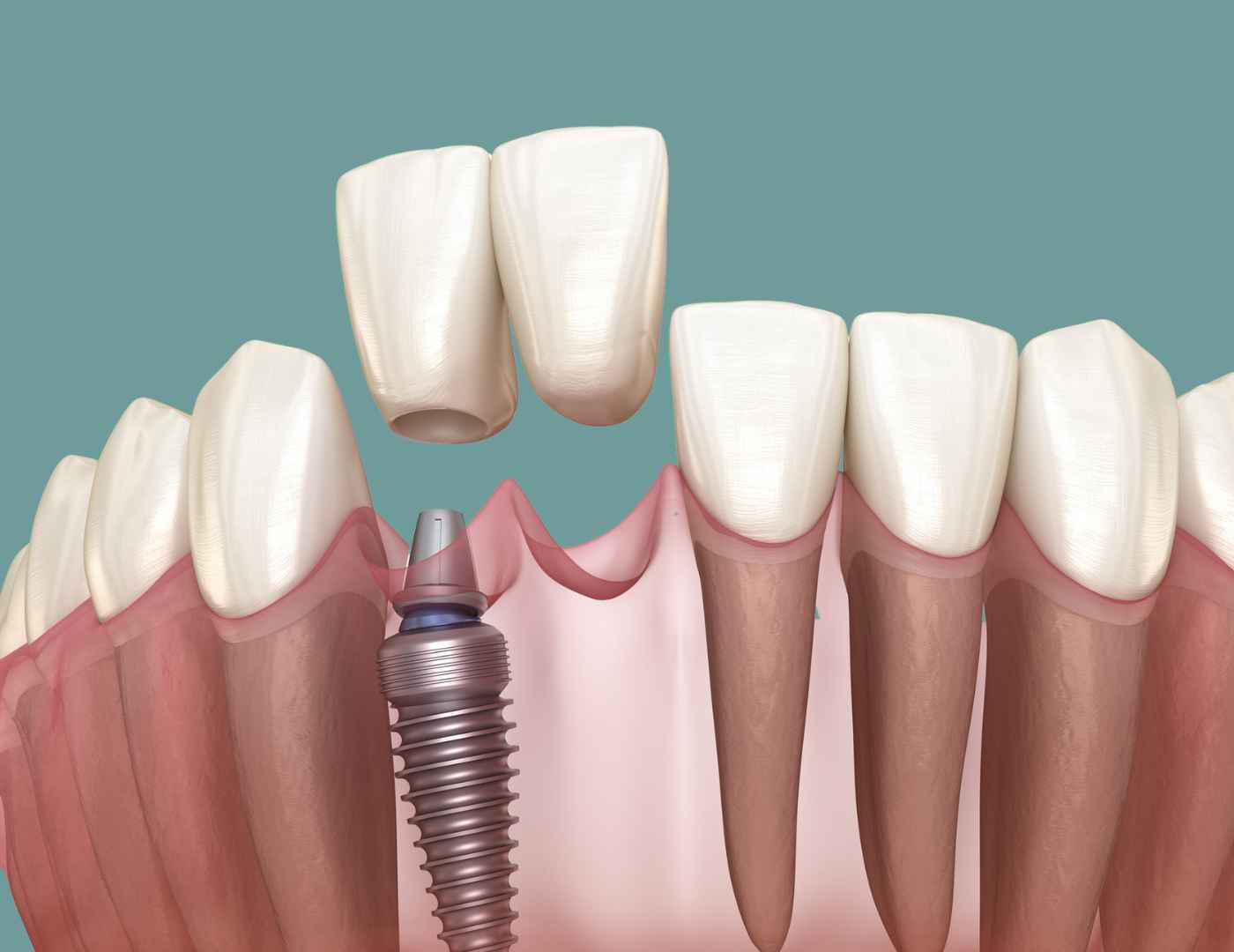health
The Growth of Integrative Medicine: Blending Approaches for Better Health

The Growth of Integrative Medicine
Integrative Medicine, a holistic approach to healthcare that combines conventional medical treatments with alternative therapies, has seen significant growth in recent years. This burgeoning field aims to treat the whole person—body, mind, and spirit—rather than just addressing symptoms. As patients and healthcare providers increasingly recognize the benefits of a more comprehensive approach to wellness, it is poised to transform the landscape of healthcare.
Understanding Integrative Medicine
Integrative Medicine is not merely a juxtaposition of conventional and alternative treatments; it is a carefully curated blend designed to optimize patient outcomes. Conventional medicine, often referred to as Western medicine, focuses on evidence-based treatments, including pharmaceuticals, surgery, and other technologically advanced interventions. Alternative medicine encompasses a wide range of practices, such as acupuncture, herbal medicine, chiropractic care, and mind-body techniques like yoga and meditation.
The core philosophy of Integrative Medicine is to harness the strengths of both conventional and alternative approaches. This synthesis aims to enhance the effectiveness of treatments, minimize side effects, and improve overall well-being. By addressing the root causes of illness and promoting preventive care, Integrative Medicine offers a more sustainable path to health.
The Rise of Integrative Medicine
Several factors have contributed to the growing popularity of Integrative Medicine. One of the most significant drivers is patient demand. As individuals become more informed about their health options, many are seeking treatments that align with their personal beliefs and preferences. The desire for a more personalized and patient-centered approach to healthcare has led many to explore this.
Additionally, there is a growing body of research supporting the efficacy of various alternative therapies. Studies have shown that practices such as acupuncture and mindfulness meditation can be effective in managing chronic pain, reducing stress, and improving mental health. This scientific validation has helped to legitimize alternative treatments and integrate them into mainstream healthcare.
Healthcare providers are also recognizing the value of Integrative Medicine. Many medical schools and training programs now include courses on alternative therapies, and hospitals and clinics are increasingly offering integrative services. This shift reflects a broader understanding that optimal health requires a multifaceted approach.

Picture by: Yandex.com
Key Components of Integrative Medicine
Integrative Medicine encompasses a wide range of treatments and practices. Some of the most commonly used modalities include:
Acupuncture
Acupuncture, a traditional Chinese medicine practice, involves the insertion of thin needles into specific points on the body to balance the flow of energy, or qi. Research has shown that acupuncture can be effective in treating conditions such as chronic pain, migraines, and anxiety.
Herbal Medicine
Herbal medicine uses plant-based remedies to treat various ailments. Herbs such as turmeric, ginger, and echinacea have been studied for their anti-inflammatory and immune-boosting properties. Herbal medicine can be used alongside conventional treatments to enhance their effectiveness and reduce side effects.
Mind-Body Practices
Mind-body practices, such as yoga, meditation, and tai chi, focus on the connection between mental and physical health. These practices have been shown to reduce stress, improve mood, and enhance overall well-being. They are often used as complementary therapies for conditions such as depression, anxiety, and chronic pain.
Nutritional Counseling
Nutrition plays a crucial role in overall health, and Integrative Medicine emphasizes the importance of a balanced diet. Nutritional counseling involves personalized dietary recommendations to support health and prevent disease. This approach can be particularly beneficial for managing conditions such as diabetes, heart disease, and obesity.
Chiropractic Care
Chiropractic care involves the manipulation of the spine and other joints to improve alignment and relieve pain. It is commonly used to treat musculoskeletal issues, such as back pain and headaches. Chiropractic care can be an effective complement to conventional treatments, particularly for patients seeking non-pharmaceutical pain relief.
Benefits of Integrative Medicine
Integrative Medicine offers several advantages over conventional approaches alone. By combining treatments, it aims to provide more comprehensive and effective care. Some of the key benefits include:
Holistic Care
Integrative Medicine treats the whole person, addressing physical, emotional, and spiritual aspects of health. This holistic approach can lead to better overall outcomes and improved quality of life.
Personalized Treatment
Integrative Medicine recognizes that each patient is unique and tailors treatments to individual needs. This personalized approach can enhance the effectiveness of care and improve patient satisfaction.
Preventive Focus
By emphasizing preventive care and lifestyle modifications, it aims to reduce the risk of chronic diseases and promote long-term health. This proactive approach can lead to better health outcomes and lower healthcare costs.
Reduced Side Effects
Combining conventional and alternative treatments can help to minimize the side effects of medications and other interventions. For example, acupuncture and herbal medicine can be used to alleviate the side effects of chemotherapy, improving the quality of life for cancer patients.
Enhanced Patient Engagement
Integrative Medicine encourages patients to take an active role in their health. By involving patients in treatment decisions and promoting self-care practices, it fosters a sense of empowerment and responsibility.
Challenges and Considerations
Despite its many benefits, Integrative Medicine also faces challenges. One of the primary obstacles is the need for more rigorous scientific research to validate the effectiveness of certain alternative therapies. While many practices have shown promise, further studies are needed to establish their efficacy and safety conclusively.
Another challenge is the integration of alternative therapies into conventional healthcare settings. This requires collaboration between different types of healthcare providers, which can be difficult to achieve. Additionally, insurance coverage for alternative treatments is often limited, making it difficult for patients to access integrative care.
Finally, there is a need for standardized training and certification for practitioners of Integrative Medicine. Ensuring that providers have the necessary skills and knowledge is crucial for maintaining the quality and safety of care.
The Future of Integrative Medicine
The future of Integrative Medicine looks promising, as more patients and healthcare providers embrace this comprehensive approach to care. Continued research and education will be essential for advancing the field and overcoming current challenges. By fostering collaboration between conventional and alternative practitioners, Integrative Medicine has the potential to revolutionize healthcare and improve patient outcomes.
As the healthcare landscape continues to evolve, Integrative Medicine offers a model for a more holistic, personalized, and preventive approach to health. By blending the best of conventional and alternative therapies, it provides a path to optimal well-being and a brighter future for patients and providers alike.
In conclusion, Integrative Medicine represents a significant shift in the way we approach health and wellness. By combining the strengths of conventional and alternative treatments, it offers a more comprehensive and effective approach to care. As the field continues to grow, it has the potential to transform healthcare and improve the lives of countless individuals.
Beauty Fitness
Liposuction in Riyadh: Your Complete Guide to Body Contouring

If you’ve been struggling with stubborn fat that doesn’t respond to diet and exercise, you’re not alone. Many people explore Liposuction in Riyadh as a reliable and medically supervised way to refine body contours and achieve a more sculpted appearance.
While liposuction is one of the most popular cosmetic procedures worldwide, beginners often have questions about how it works, who it’s for, and what results to realistically expect. This guide outlines all the essential information you should understand in a straightforward, beginner-oriented manner.

What Is Liposuction?
Liposuction is a cosmetic surgical procedure designed to remove localized fat deposits from specific areas of the body to improve shape and proportion. It is not a weight-loss solution but rather a body contouring treatment that targets fat resistant to lifestyle changes. Common treatment areas include the abdomen, thighs, hips, arms, back, and chin. The procedure involves inserting a thin tube called a cannula beneath the skin to suction out excess fat, permanently removing fat cells from the treated area and creating a smoother silhouette.
Liposuction vs. Weight Loss
A common misconception is that liposuction is a substitute for weight loss. In reality, liposuction is designed for body sculpting, not obesity treatment. Key differences include:
- Liposuction removes targeted fat cells
- Weight loss shrinks fat cells throughout the body
- Liposuction enhances contour and shape
- Weight loss improves overall health metrics
Maintaining a healthy diet and exercise routine after the procedure is essential to preserve results and prevent remaining fat cells from expanding.
Your Skin Has Good Elasticity
Skin elasticity plays a significant role in achieving smooth and natural-looking results after fat removal. When fat cells are removed, the skin must retract and adapt to the new contour. Good candidates typically:
- Have firm, elastic skin
- Show minimal sagging in the treatment area
- Are not dealing with significant loose skin
If skin laxity is severe, additional procedures such as skin tightening or excisional surgery may be recommended alongside liposuction for optimal results.
You Are in Good Overall Health
General health is an essential factor in determining candidacy for any surgical procedure. Liposuction candidates should:
- Be free from uncontrolled chronic conditions
- Not have serious heart or lung disease
- Be non-smokers or willing to stop smoking before surgery
- Have no active infections
A thorough medical evaluation ensures that you can safely undergo the procedure and recover without complications. Being in good health also promotes faster healing and better outcomes.
You Have Realistic Expectations
Understanding what liposuction can and cannot achieve is crucial. It can significantly improve body contours, but it won’t completely transform your body or eliminate cellulite. Good candidates:
- Understand liposuction is body sculpting, not weight loss
- Expect improvement rather than perfection
- Are mentally prepared for recovery time
- Recognize that results take time as swelling subsides
Clear communication with your surgeon during consultation helps align expectations with achievable outcomes.
You Are Committed to Maintaining Results
Liposuction permanently removes fat cells from treated areas, but remaining fat cells can expand with weight gain. Long-term success depends on maintaining a healthy lifestyle. Ideal candidates are prepared to:
- Follow a balanced, nutritious diet
- Stay physically active
- Maintain a stable weight
- Attend follow-up appointments
Patients considering Liposuction in Riyadh often find that achieving their desired contour motivates them to continue healthy habits long after recovery.
You Want to Enhance Body Contours, Not Drastically Change Your Body:
Liposuction is best suited for contour enhancement rather than dramatic reshaping. It refines proportions and creates smoother transitions between areas of the body. You may be a strong candidate if:
- You want more definition in specific areas
- You aim to improve body symmetry
- You desire better-fitting clothing
- You seek subtle but noticeable contour improvements
This mindset leads to higher satisfaction rates, as patients appreciate gradual refinement rather than expecting extreme transformations.
Maintaining Your Results
The long-term success of liposuction largely depends on lifestyle habits. While removed fat cells do not return, remaining fat cells can enlarge with weight gain. To maintain results:
- Follow a balanced, nutrient-rich diet
- Engage in regular physical activity
- Stay hydrated
- Attend follow-up appointments as advised
- Maintain a stable weight
Many patients find that seeing improved contours motivates them to adopt healthier habits for lasting benefits.
Choosing the Right Provider
Selecting the right surgeon plays a critical role in achieving safe and natural-looking results. Look for a board-certified plastic surgeon with experience in body contouring procedures. During your consultation, ask about:
- Qualifications and certifications
- Before-and-after photos
- Surgical techniques used
- Recovery expectations
- Potential risks
If you’re exploring Liposuction in Riyadh, prioritize clinics that emphasize patient safety, transparent communication, and personalized treatment plans.
How Liposuction Works
Liposuction works by breaking down and extracting fat cells from targeted areas using specialized techniques. Depending on the method used, fat may be loosened with a tumescent solution, ultrasound energy, or laser technology before removal. The basic steps typically include:
- Administering anesthesia for comfort
- Making small, discreet incisions
- Inserting a cannula to loosen fat
- Suctioning out the fat cells
- Closing the incisions and applying compression garments
Once fat cells are removed, they do not regenerate, but maintaining results requires a stable weight and healthy lifestyle.
Who Is a Good Candidate?
An ideal candidate for liposuction is someone close to their target weight but dealing with stubborn fat pockets that don’t respond to exercise. Candidates should be in good overall health, have firm skin with good elasticity, and hold realistic expectations about the outcome. Liposuction is best suited for body contouring rather than dramatic weight reduction. Individuals with significant skin laxity or certain medical conditions may require alternative or additional procedures to achieve optimal results.
Areas Commonly Treated
Liposuction can be performed on multiple areas of the body, allowing for customized treatment plans tailored to individual goals. Frequently treated areas include:
- Abdomen and waist (love handles)
- Thighs (inner and outer)
- Arms
- Back and bra line
- Chin and neck
- Hips and flanks
Some patients choose to treat multiple areas in one session, depending on safety guidelines and surgeon recommendations.
Types of Liposuction Techniques
Advancements in cosmetic surgery have introduced various liposuction techniques designed to improve precision and recovery. The most common types include:
- Tumescent liposuction: Uses a medicated solution to reduce bleeding and discomfort
- Ultrasound-assisted liposuction (UAL): Uses sound waves to liquefy fat
- Laser-assisted liposuction: Uses laser energy to break down fat and may promote mild skin tightening
- Power-assisted liposuction (PAL): Uses a vibrating cannula for easier fat removal
Each method has its advantages, and the right choice depends on the treatment area, patient goals, and surgeon expertise.
What to Expect During Recovery
Recovery varies depending on the extent of the procedure and the areas treated. Most patients experience swelling, bruising, and mild discomfort in the first few days. Compression garments are typically worn to reduce swelling and help the body adapt to its new contours. General recovery expectations include:
- Returning to light activities within a few days
- Resuming normal routines within 1–2 weeks
- Gradual reduction of swelling over several weeks
- Final results becoming visible after a few months
Following post-operative instructions carefully is essential for optimal healing and long-lasting results.
Benefits of Liposuction
Liposuction offers both physical and psychological benefits for suitable candidates. While results vary, many patients report:
- Improved body proportions
- Enhanced clothing fit
- Boosted self-confidence
- Long-lasting fat reduction in treated areas
- More defined body contours
For individuals considering Liposuction in Riyadh, choosing a qualified and experienced medical provider is crucial to achieving safe and satisfying results.
Risks and Considerations
Like any surgical procedure, liposuction carries potential risks. Although complications are uncommon when performed by a skilled professional, it’s important to understand possible side effects, such as swelling, bruising, contour irregularities, or temporary numbness. Serious complications are rare but may include infection or fluid accumulation. A thorough consultation and honest discussion of medical history significantly reduce these risks and ensure appropriate candidacy.
Liposuction vs. Weight Loss
A common misconception is that liposuction is a substitute for weight loss. In reality, liposuction is designed for body sculpting, not obesity treatment. Key differences include:
- Liposuction removes targeted fat cells
- Weight loss shrinks fat cells throughout the body
- Liposuction enhances contour and shape
- Weight loss improves overall health metrics
Maintaining a healthy diet and exercise routine after the procedure is essential to preserve results and prevent remaining fat cells from expanding.
Maintaining Your Results
The long-term success of liposuction largely depends on lifestyle habits. While removed fat cells do not return, remaining fat cells can enlarge with weight gain. To maintain results:
- Follow a balanced, nutrient-rich diet
- Engage in regular physical activity
- Stay hydrated
- Attend follow-up appointments as advised
- Maintain a stable weight
Many patients find that seeing improved contours motivates them to adopt healthier habits for lasting benefits.
Choosing the Right Provider
Selecting the right surgeon plays a critical role in achieving safe and natural-looking results. Look for a board-certified plastic surgeon with experience in body contouring procedures. During your consultation, ask about:
- Qualifications and certifications
- Before-and-after photos
- Surgical techniques used
- Recovery expectations
- Potential risks
If you’re exploring Liposuction in Riyadh, prioritize clinics that emphasize patient safety, transparent communication, and personalized treatment plans.
Final Thoughts:
Liposuction is a powerful body contouring solution for individuals seeking to refine their shape and address stubborn fat deposits. Understanding how the procedure works, who it’s suitable for, and what recovery involves helps set realistic expectations and ensures informed decision-making.
While not a weight-loss shortcut, liposuction can significantly enhance body proportions and confidence when combined with a healthy lifestyle. By choosing a qualified provider and following proper aftercare, patients can enjoy long-lasting, natural-looking results that support both aesthetic goals and overall well-being.
Consumer Services
Healthcare Documentation: Exploring Medical Scribe Services

In the ever-evolving healthcare landscape, accurate and timely documentation is crucial. Physicians face growing administrative burdens, reducing the time they can spend with patients. Medical scribe services provide a solution, enhancing efficiency while maintaining high-quality records.
From traditional human scribe support to advanced AI medical scribe technologies and flexible virtual medical scribe services, healthcare providers can streamline their operations and focus on patient care. Additionally, virtual medical scribe companies and tele scribe solutions offer scalable options for practices of any size.
This article explores medical scribe services, virtual medical scribe, tele scribe, human vs AI scribe, and virtual medical scribe companies, helping healthcare providers choose the best documentation solution.

What Are Medical Scribe Services?
Medical scribe services involve trained professionals who assist physicians by documenting patient encounters accurately and efficiently. This reduces administrative workload, improves record quality, and enhances workflow efficiency.
Benefits of Medical Scribe Services
- Accurate and detailed documentation
- Faster patient charting and billing
- Reduced physician burnout
- Increased time for patient interaction
A medical scribe for physicians ensures that every encounter is documented according to healthcare standards, improving both patient care and compliance.
Virtual Medical Scribe Services
Virtual medical scribe services allow documentation to be performed remotely. This is ideal for telemedicine, multi-location practices, and physicians seeking flexible support without on-site staff.
Advantages of Virtual Medical Scribe
- Real-time remote documentation
- Integration with electronic health records (EHR)
- Flexible staffing schedules
- Cost-effective for smaller or expanding practices
Partnering with reputable virtual medical scribe companies ensures secure, accurate, and compliant documentation services.
Tele scribe: Real-Time Remote Documentation
Tele scribe provides live documentation support during patient consultations, especially beneficial for telehealth or multi-provider practices.
Key Benefits of Tele scribe
- Immediate, accurate charting during patient visits
- Support for multiple physicians simultaneously
- Reduced backlog in medical records
- Seamless integration with existing EHR systems
Tele scribe improves workflow efficiency, allowing physicians to focus on patient care instead of administrative tasks.
Human Scribe: Personalized Support
A human scribe brings a level of understanding, flexibility, and insight that automated solutions cannot fully replicate.
Why Human Scribe Is Valuable
- Context-aware documentation
- Personalized note-taking for complex cases
- Adaptable to specialty-specific documentation
- Enhanced collaboration with physicians and staff
Human scribes are particularly useful in high-complexity specialties such as cardiology, neurology, and surgical practices.
AI Medical Scribe: Streamlined Automation
An AI medical scribe uses artificial intelligence to document patient interactions efficiently. AI scribes analyze speech, extract key clinical information, and generate accurate notes.
Advantages of AI Medical Scribe
- Fast and standardized documentation
- Scalable solution for high-volume practices
- Reduced administrative workload
- Improved consistency in patient records
Combining AI medical scribe with human review can create a hybrid model, offering both speed and contextual accuracy.
Human vs AI Scribe: Choosing the Right Option
Understanding the differences between human vs AI scribe is essential for healthcare providers.
| Feature | Human Scribe | AI Medical Scribe |
|---|---|---|
| Personalization | High | Moderate |
| Real-Time Support | Yes | Partial |
| Contextual Understanding | Strong | Moderate |
| Scalability | Moderate | High |
| Workflow Adaptability | High | Moderate |
Many practices opt for a hybrid model that combines the contextual strengths of human scribes with the speed of AI.
Top Virtual Medical Scribe Companies
Selecting the right virtual medical scribe company ensures reliable and secure documentation. Key considerations include:
- Experience and expertise in healthcare
- EHR integration capabilities
- Service options (human, AI, or hybrid)
- Cost-effectiveness
The best virtual medical scribe companies offer seamless documentation, compliance assurance, and scalable support for growing practices.
Comparison of Scribe Options
| Scribe Type | Key Benefits | Ideal Use Case |
|---|---|---|
| Human Scribe | Personalized, context-aware | Complex medical cases |
| AI Medical Scribe | Fast, standardized | High-volume clinics |
| Virtual Medical Scribe | Flexible, remote | Telemedicine and multi-location practices |
| Tele scribe | Live remote documentation | Real-time telehealth or multiple providers |
Hybrid solutions combining these options are becoming increasingly popular for optimizing workflow.
Future of Medical Scribe Services
The medical scribe industry continues to evolve with technological advancements:
- Expansion of virtual medical scribe services
- Increased adoption of tele scribe in telemedicine
- Integration of AI medical scribe for faster and accurate documentation
- Growth of hybrid models combining human and AI scribes
These trends improve efficiency, reduce physician burnout, and enhance patient care quality.
FAQs
1. What is a medical scribe?
A professional who documents patient encounters to assist physicians with accurate record-keeping.
2. What are virtual medical scribe services?
Remote documentation services that allow scribes to record patient interactions in real-time or after consultations.
3. How does tele scribe work?
Tele scribe provides live remote documentation support during patient visits.
4. Human vs AI scribe – which is better?
Human scribes excel in personalized, context-sensitive notes, while AI scribes offer speed, scalability, and standardization.
5. Why are medical scribe services important?
They improve workflow efficiency, reduce physician workload, and enhance documentation accuracy.
6. Are virtual medical scribe companies reliable?
Yes, reputable companies provide secure, accurate, and compliant documentation tailored to each practice.
Conclusion
From medical scribe services to virtual medical scribe, tele scribe, AI medical scribe, and human scribe, modern documentation solutions are transforming healthcare. Partnering with trusted virtual
Care
Transform Your Smile with Dental Implants in Dubai

A confident smile can change the way people perceive you, and dental implants offer a remarkable way to restore both appearance and function. Dental implants have become a leading solution for individuals seeking a permanent and natural-looking replacement for missing teeth. By seamlessly integrating with the jawbone, Dental Implants Dubai provide stability and durability that other options often cannot match. From enhancing oral health to boosting self-confidence, the benefits of dental implants are extensive and transformative.
Understanding the Dental Implant Process
Dental implants are designed to replace missing teeth with results that feel and look natural. The process typically begins with a thorough evaluation to determine bone density and oral health, ensuring that the foundation is suitable for implantation. Once the assessment is complete, the implant is surgically placed into the jawbone.

Key Benefits of Dental Implants
Enhancing Aesthetic Appeal
A radiant smile plays a crucial role in self-confidence and personal presentation. Dental implant are custom-designed to match the shape, size, and color of natural teeth, creating a seamless appearance. Unlike other options, dental implants do not rely on neighboring teeth for support, ensuring a natural contour and symmetry. The result is a smile that looks authentic and enhances facial aesthetics. Individuals often notice an immediate boost in self-esteem after completing the implant process, enjoying the freedom to express themselves without hesitation.
Functional Advantages of Dental Implant
Dental implants offer more than visual enhancement. They provide a level of stability and functionality that mimics natural teeth. The secure fit allows for comfortable chewing and clear speech, restoring the ability to enjoy all types of foods without restriction. Because implants are anchored directly to the jawbone, they eliminate concerns about dentures slipping or causing discomfort. This functional reliability contributes to overall oral health by making everyday activities easier and more comfortable.
Longevity and Durability
One of the most compelling aspects of dental implant is their long-lasting nature. With proper care, dental implants can last a lifetime, making them a sustainable solution for tooth replacement. The materials used are highly resistant to decay and wear, reducing the need for frequent replacements. Regular dental check-ups and proper oral hygiene ensure that implants remain strong and functional. This combination of durability and minimal maintenance makes dental implant an excellent choice for anyone seeking a permanent solution to missing teeth.
Promoting Oral Health
Common Questions
How long does the process take?
The timeline for dental implants varies depending on individual needs. Typically, the process from initial consultation to final restoration can take several months. This period allows for proper healing and osseointegration, ensuring the implant is securely anchored and ready for the final restoration.
Is the procedure painful?
Most patients report minimal discomfort during the dental implant procedure. Local anesthesia is used to ensure a comfortable experience, and post-procedure soreness is usually manageable with over-the-counter pain relief. The process is designed to prioritize patient comfort and recovery.
Can anyone get dental implants?
While dental implants are suitable for many individuals, candidates must have sufficient bone density and good oral health. A thorough evaluation helps determine whether dental implants are the best solution. In some cases, preparatory procedures may be recommended to strengthen the jawbone before implant placement.
How do dental implants compare to other tooth replacement options?
Dental implants offer unique advantages, including long-term durability, natural appearance, and preservation of surrounding teeth. Their ability to restore function and aesthetics makes them a preferred choice for individuals seeking a permanent and reliable solution.
How should dental implants be cared for?
Caring for dental implants is similar to maintaining natural teeth. Daily brushing, flossing, and regular dental check-ups help ensure longevity. Because dental implants do not decay, they offer a consistent and reliable solution for maintaining oral health.
Why Choose Dental Implants Today
Cheapest Dental Implants in Dubai are more than a cosmetic enhancement—they are a comprehensive solution that addresses both functional and aesthetic needs. They empower individuals to regain confidence in their smile and enjoy everyday activities without restriction. Whether addressing a single missing tooth or multiple gaps, dental implants offer flexibility, strength, and a natural appearance. Their long-term benefits, combined with the ease of care and durability, make them a worthwhile investment in oral health and self-confidence.
Conclusion
Dental implants provide an effective, natural-looking solution for anyone seeking a complete and confident smile. By restoring function, enhancing appearance, and supporting oral health, they offer unmatched advantages over other options. Those considering dental implant can enjoy a seamless process, long-lasting results, and a boost in self-esteem that transforms both personal and social interactions. Embracing dental implant today can be the first step toward a smile that exudes confidence, health, and elegance. Take the opportunity to explore dental implants and discover how they can perfectly elevate your smile with ease.
-
Business3 years ago
Cybersecurity Consulting Company SequelNet Provides Critical IT Support Services to Medical Billing Firm, Medical Optimum
-
Business3 years ago
Team Communication Software Transforms Operations at Finance Innovate
-
Business3 years ago
Project Management Tool Transforms Long Island Business
-
Business2 years ago
How Alleviate Poverty Utilized IPPBX’s All-in-One Solution to Transform Lives in New York City
-
health3 years ago
Breast Cancer: The Imperative Role of Mammograms in Screening and Early Detection
-
Sports3 years ago
Unstoppable Collaboration: D.C.’s Citi Open and Silicon Valley Classic Unite to Propel Women’s Tennis to New Heights
-
Art /Entertainment3 years ago
Embracing Renewal: Sizdabedar Celebrations Unite Iranians in New York’s Eisenhower Park
-
Finance3 years ago
The Benefits of Starting a Side Hustle for Financial Freedom









































